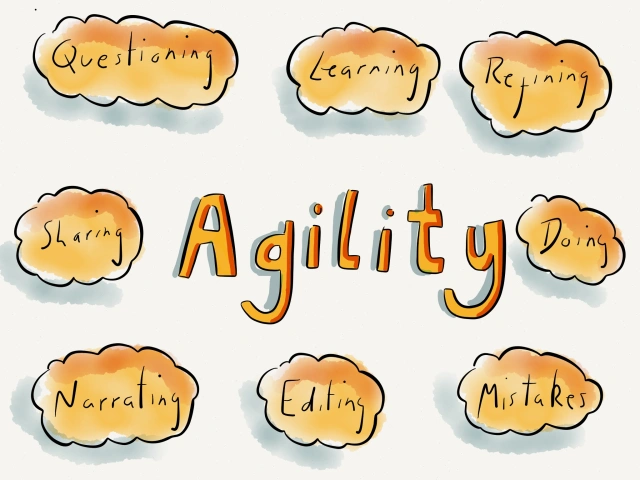
Stay Agile and Adapt: The Key to Startup Success
Stay Agile and Adapt: The Key to Startup Success https://theraise.eu/wp-content/uploads/2023/10/image12.webp 640 480 RAISE fosters startup growth and scale-up within and across Europe RAISE fosters startup growth and scale-up within and across Europe https://theraise.eu/wp-content/uploads/2023/10/image12.webpIn the fast-paced world of startups, the ability to adapt and stay agile is often the difference between success and failure. This dynamic and ever-evolving business environment demands a mindset that embraces change and innovation. Startups that can pivot quickly, respond to market feedback, and remain resilient in the face of challenges are the ones most likely to thrive. Here’s a closer look at why staying agile and adaptable is essential for startup success.
1. Responding to Market Shifts
Startups often face unpredictable market shifts, whether due to changes in consumer preferences, economic downturns, or unforeseen global events. Being agile means being attuned to these shifts and having the flexibility to change direction swiftly. Companies that adapt to market changes are better positioned to capture new opportunities and avoid potential pitfalls.
2. Embracing Innovation
Innovation is the lifeblood of startups. To stay competitive, companies need to foster a culture of continuous innovation. This means encouraging employees to think creatively, take calculated risks, and challenge the status quo. By doing so, startups can stay ahead of the curve, differentiate themselves from competitors, and create groundbreaking solutions.
3. Rapid Iteration and Feedback Loops
One of the hallmarks of agile startups is their ability to iterate quickly. They build products and services with the understanding that they may need to change based on user feedback or emerging trends. This approach allows startups to fine-tune their offerings, meet customer needs more precisely, and develop a product-market fit that leads to sustained growth.
4. Cost-Efficiency
Startups often operate with limited resources. Staying agile allows them to maximize their efficiency by focusing on the most critical tasks and avoiding unnecessary expenditures. Agile startups can pivot when they discover a more cost-effective way to achieve their goals, thus preserving capital for essential activities.
5. Learning from Failure
In the startup world, failure is often considered a stepping stone to success. Being agile means not being afraid to make mistakes and learn from them. It’s about using failures as valuable lessons that contribute to the company’s growth. A culture that acknowledges and learns from failure can be a powerful asset for startups.
6. Building Resilience
Startups encounter numerous challenges, from financial setbacks to unforeseen market disruptions. An agile and adaptable mindset helps them build resilience. It equips them to bounce back from setbacks, pivot in response to adversity, and maintain a relentless focus on long-term objectives.
7. Scaling for Success
Adaptability is not just about reacting to change but also about scaling for success. As startups grow, they often encounter new challenges. An agile approach to scaling means being prepared to adjust processes, systems, and strategies to accommodate growth while maintaining the core values and vision of the company.
In conclusion, staying agile and adaptable is more than a strategy; it’s a way of life for successful startups. Embracing change, learning from mistakes, and fostering a culture of innovation are all essential elements in the startup journey. Startups that make agility and adaptability part of their DNA are better equipped to navigate the unpredictable terrain of the business world and increase their chances of long-term success. So, remember, in the world of startups, staying agile is not just an option; it’s a necessity.
Photo via Julian Stodd
- Posted In:
- Startup News




